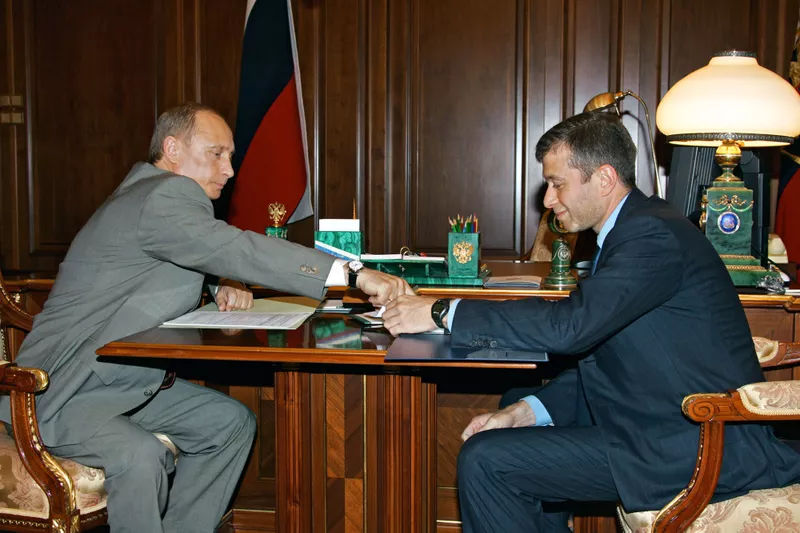
Russian President Vladimir Putin, left, and oil tycoon Roman Abramovich meet at the Kremlin in Moscow in 2005. Abramovich is best known outside Russia as the owner of the U.K.’s Chelsea soccer team. ITAR-TASS, Presidential Press Service / AP Photo
Big business has had its claws in football for decades, with Coca-Cola having a business relationship with world governing body FIFA since 1950. But recently, the game has become an arena for geopolitics.
Russian oligarch Roman Abramovich, a friend of Russian president Vladimir Putin, has owned Chelsea since 2003, with the club giving him respectability and acceptance in London society.
Manchester City’s 2008 takeover by a member of the Abu Dhabi royal family, with resources as deep as a trillion dollars, completely has altered the hierarchy of English football. Without that foreign money, Pep Guardiola would not be working in Manchester alongside star players like Sergio Aguero and Kevin De Bruyne.
A similar situation is taking place at Paris Saint-Germain, owned by Qatar Sports Investments, like City’s owners, an operative of an entire Arabian Gulf state.
Qatar’s ownership of PSG since 2011 and securing the rights to host the 2022 World Cup are examples of “soft power,” where a sports club is used to gain cultural and social influence. Football has become the sport wealth seeks out to gain influence, as globalization has taken hold.
The Premier League, the world’s most-watched and richest league in terms of TV revenue, has 13 foreign owners of its 20 clubs, including five Americans, two Russians, two Chinese and one each from Italy, Thailand, Iran and Malaysia.